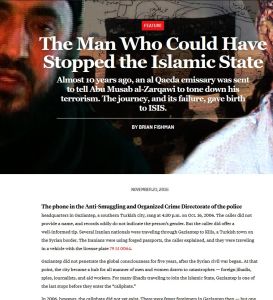Join getAbstract to access the summary!

Join getAbstract to access the summary!
Brian Fishman
The Man Who Could Have Stopped the Islamic State
Foreign Policy, 2016
What's inside?
How did al-Qaeda try and ultimately fail to shape Islamic State’s approach to global jihad?
Recommendation
How did the arrest of al-Qaeda operative Abd al-Hadi al-Iraqi in 2006 help the spread of Islamic State’s brand of jihad? In this compelling article, Facebook counterterrorism policy manager Brian Fishman charts Abd al-Hadi al-Iraqi’s history with ISIS founder Abu Musab al-Zarqawi, explains how the split between al-Qaeda and its former ally developed, and explores the question of how Abd al-Hadi’s arrest may have helped to enable ISIS’s proliferation. getAbstract recommends this article to those with an interest in the roots of contemporary Middle Eastern politics.
Summary
About the Author
Brian Fishman is lead policy manager of counterterrorism at Facebook and the author of The Master Plan: ISIS, Al Qaeda, and the Jihadi Strategy for Final Victory.
















Comment on this summary